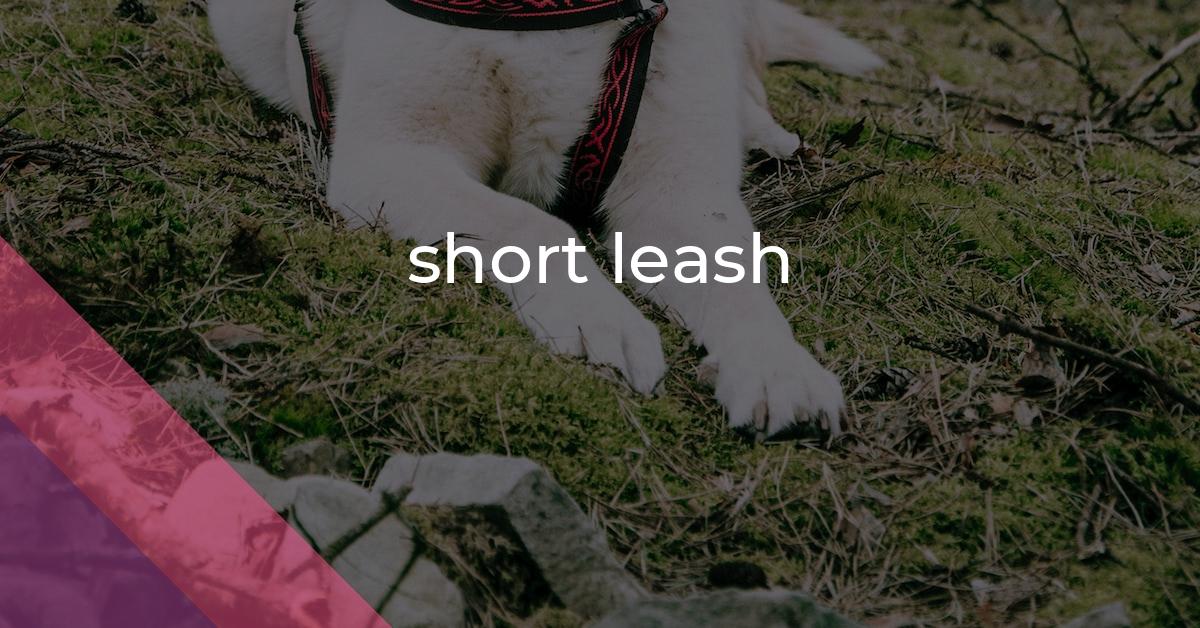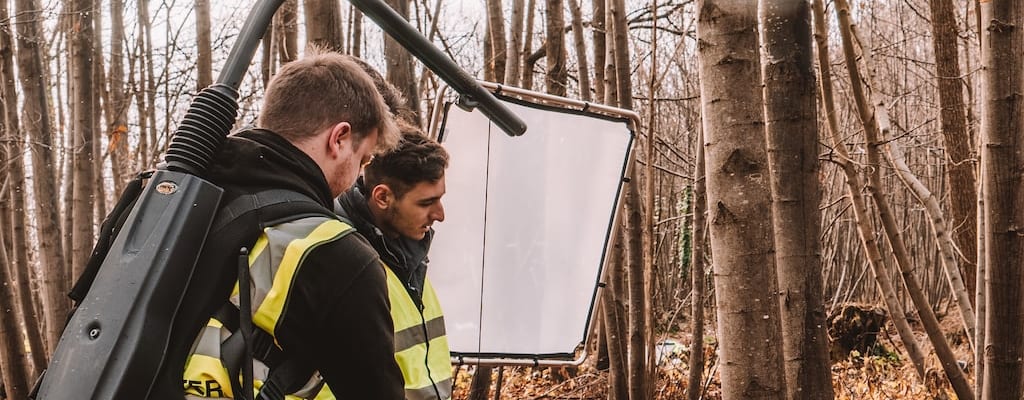short leash: Idiom Meaning and Origin
What does ‘short leash’ mean?
The idiom "short leash" means to have strict control or close supervision over someone or something, limiting their freedom or independence.

Idiom Explorer
The idiom "teeny weeny" means something extremely small or tiny.
The idiom "teacher's pet" refers to a student who is favored by the teacher, often receiving special attention or privileges. The term can carry a negative connotation of being excessively obedient or seeking undeserved advantages.
"Take the reins" means to assume control or responsibility, often in a leadership position. It derives from the act of grabbing the reins of a horse to guide its direction and speed.
The idiom "take liberties" means to act in a way that is not appropriate or allowed, often by exceeding boundaries or disregarding rules or norms.
The idiom "tail wagging the dog" means a small or unimportant thing or person controlling a larger or more powerful thing or person. It refers to the idea of a dog being controlled by its tail, instead of the tail being controlled by the dog.
The idiom "strangle the parrot" means to silence or suppress someone or something, usually in a forceful or oppressive manner.
The idiom "stick to" means to remain loyal or to adhere to a specific plan or decision.
The idiom "slippery as an eel" means that someone or something is difficult to grasp or hold onto, making it hard to control or predict their actions.
The idiom "slap on the wrist" means to receive a very mild punishment or reprimand for a wrongdoing, usually with little consequence or impact on the person's behavior.
The idiom "short strokes" means to approach a task or problem by focusing on small, incremental steps rather than taking on the whole thing at once.
FAIL
The idiom "short leash" is a commonly used phrase in the English language. It is often heard in informal conversations and can be found in various written texts. The idiom has its origins in the world of dog training, specifically referring to the act of keeping a dog on a short leash to maintain control over its actions.
This expression is generally used figuratively to describe a situation in which someone is under close supervision or strict control. It implies a lack of freedom or independence, as if the person is being closely monitored or restricted in their actions. The idiom is often used in contexts where a person or entity is being carefully watched or guided to prevent any misbehavior or deviation from expectations.
The idiom "short leash" is likely rooted in the idea that a dog on a short leash has limited freedom to roam and explore, just as a person under close supervision may feel restrained or stifled. The idiom conveys a sense of constraint and suggests that the person in question is being kept in check.
In everyday language, the idiom "short leash" can be heard in various contexts. It may be used in professional settings, such as describing a manager who keeps their employees on a short leash, indicating a strict and hands-on management style. Similarly, it can be used in personal relationships to describe someone who exercises tight control or possessiveness over their partner.
Furthermore, the idiom may also be used to describe a situation where a person's actions are being monitored closely due to past behavior or a lack of trust. The implication is that the person is not given much freedom or leeway to make their own decisions or choices without constant oversight or interference.
One related idiom that is often used in conjunction with "short leash" is "have someone by the short hairs." This phrase conveys a similar sense of control or power over someone. It implies that the person in control has a strong influence or advantage over the other person, as if they have a firm grip on their hair. It suggests that the person being controlled is at the mercy of the person in power and is unable to escape their control.
Another related idiom that is commonly used alongside "short leash" is "have someone by the short and curlies." This phrase also conveys a similar sense of control or power, but adds a bit of humor to the expression. It implies that the person in control has a firm hold on the other person's hair, specifically the tightly curled hair around the genital region. This idiom suggests that the person being controlled is in a vulnerable position, unable to escape or resist the control of the other person.
Both of these related idioms, "have someone by the short hairs" and "have someone by the short and curlies," highlight the idea of control and dominance over another person. They emphasize the lack of freedom or agency that the person being controlled has, similar to the concept conveyed by the idiom "short leash."
The idiom "short leash" is a widely used expression in the English language that originated from dog training. It figuratively refers to a state of being closely watched or controlled, restricting one's freedom or independence. The idiom is often employed in both professional and personal contexts to convey a sense of constraint and supervision. Although rooted in a specific origin, the idiom has evolved to encompass a range of meanings and applications. As with many idioms, the interpretation and usage of "short leash" may vary depending on the context, which contributes to its enduring popularity in everyday language.
Example usage
Examples of how the idiom *short leash* can be used in a sentence:
- He keeps his employees on a short leash, closely monitoring their progress.
- After causing trouble at school, John's parents decided to keep him on a short leash, limiting his freedom.
- The strict coach keeps his team members on a short leash to ensure they are always focused and disciplined.
More "Phrase" idioms



